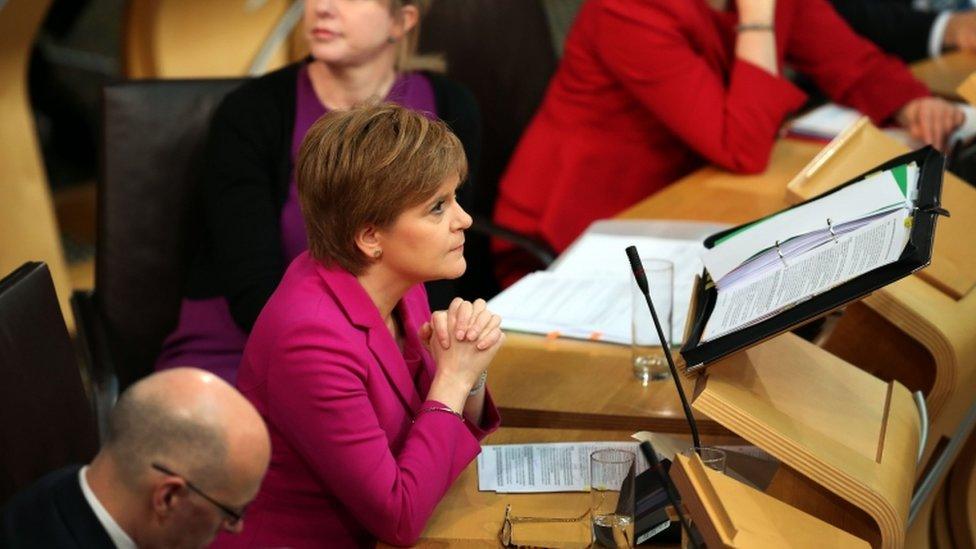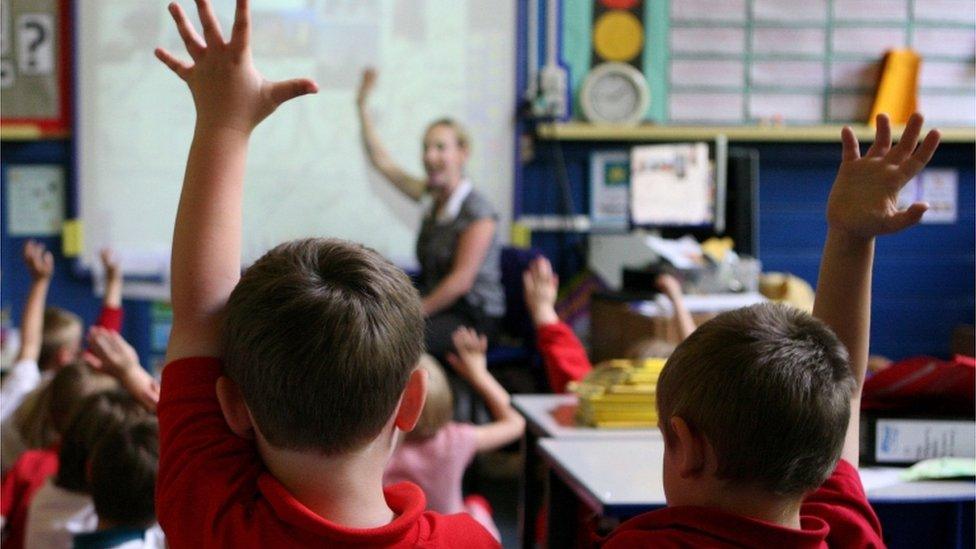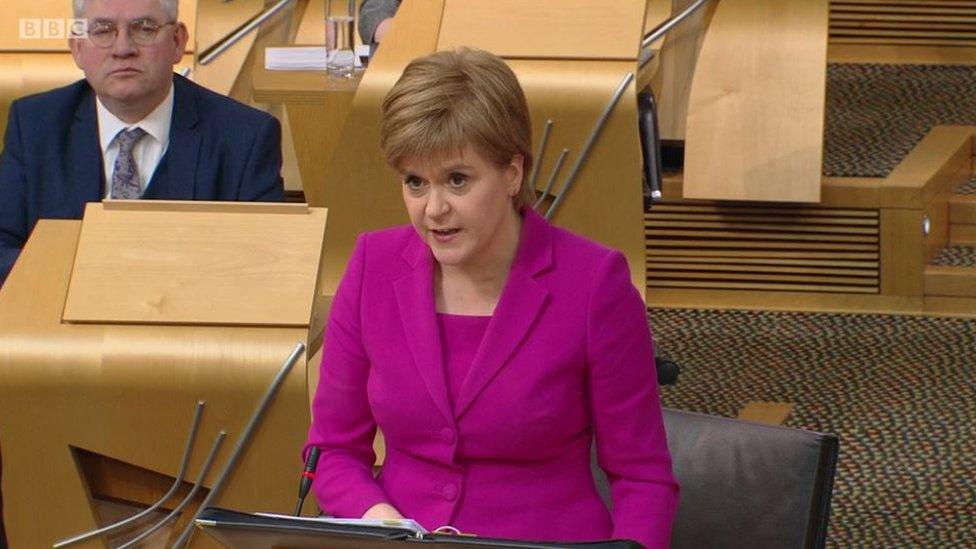Education report card makes grim reading
- Published

Ms Sturgeon faced questions over the Scottish education system's latest report card
In theatre and politics, atmosphere is all. In both scenarios, said atmosphere is commonly amplified by the onlookers.
In Greek drama, the chorus keep us right. Turn to Bertolt Brecht and such action as there is will be regularly interrupted by a dose of distancing didacticism. In panto, the comic lead will ruin the villain's big scene with a deftly burst balloon.
Today, during questions to the first minister, the tone was set by her deputy. Boy, did he look glum.
Now, John Swinney is a thoroughly affable individual. Customarily, his role in FMQs is either to lampoon opponents with mischievous sedentary banter or to chuckle with delight at a particularly witty put-down, delivered by his colleague. Thigh-slapping is not excluded.
Today he looked sombre and grim, at least during the opening exchanges. And with good reason. Nicola Sturgeon was under attack over the latest dismal report card on Scottish education.
Mr Swinney used to do the sums, as finance secretary. He was never happier than when he was baffling a Holyrood committee with wild talk of DEL resource, DEL capital and discretionary housing payments. Happy days, he must think.
Significant gap
Now, as education secretary, he is judged by other people's sums. He is assessed according to the performance of Scotland's youth in school.
To be clear, he was given the new job precisely because it is hugely challenging. Big change is in progress and it was felt that the Deputy FM, with his clout and capability, was the one to take on the task.
Which brings us to today's report. To be absolutely clear, this is not new data. The Sutton Trust has taken the international Pisa findings, published in December, and matched pupil performance to household income.
They confirmed that there was a significant gap in attainment between the offspring of poorer and wealthier households. Again to be clear, the gap was greater in England.
However, unlike in England, they discerned that the brightest Scottish school pupils were scoring below the average in developed countries. There had been a notable decline in science.
Now it is possible to challenge the Pisa findings, to question their methodology, their sampling, their interpretation. It is equally possible to challenge today's analysis by the Sutton Trust, an organisation which campaigns on behalf of disadvantaged children.

Would the Scottish government follow that route? John Swinney's solemn demeanour during the opening question from Ruth Davidson made clear: they would not.
Ms Davidson, for the Tories, accused the first minister of letting down a generation of Scotland's offspring. Ditto Kezia Dugdale for Labour.
In response, Ms Sturgeon began with context. The Pisa findings were now two years old. Her plain implication was that they had been overtaken by Scottish government interventions.
However, she insisted, vigorously, that she was not offering excuses. The state of Scottish education was simply "not good enough".
Yes, she cited better exam results and a narrowing of the attainment gap. But, under sustained pressure and with Mr Swinney by her side, she stressed that she intended to be judged by improvements to come, driven at least in part by the new £120m fund paid directly to schools.
Vigorous endeavour
And was she helped out by the Greens, her new chums in budget bargaining? Friends, she was not. Patrick Harvie argued that there was a contradiction in setting climate change targets while simultaneously preparing to cut air passenger duty, thus presumably encouraging more flights and more emissions.
Ms Sturgeon insisted that any action which appeared to jeopardise climate change targets would be matched by more vigorous endeavour in other parts of the Scottish government's portfolio. The environment remained a priority.
And then there was the standard exchange on Brexit and indyref2. She wanted to compromise with the UK government, she said, but they wouldn't play. Hence she had to keep other options available.
She would not, she said, allow Scotland to be dragged over a cliff into a hard Brexit. She had a mandate from her manifesto - in which the prospect of a second plebiscite was explicitly linked to the circumstances which now prevail.
Which prompted gossip at Holyrood. Had she gone further than before? Was she definitely signalling a referendum? Was it "game on", to borrow a phrase from her predecessor?
Not yet, no. However, it now seems decidedly probable. Theresa May is likely to trigger Article 50 in mid-March, perhaps in the week before the SNP conference.
Nicola Sturgeon's speech at that conference might repay inspection. As always. Do I think she will fully kick start the referendum then, date and all? I do not. But there may well be a few preparatory gambits.
- Published9 February 2017
